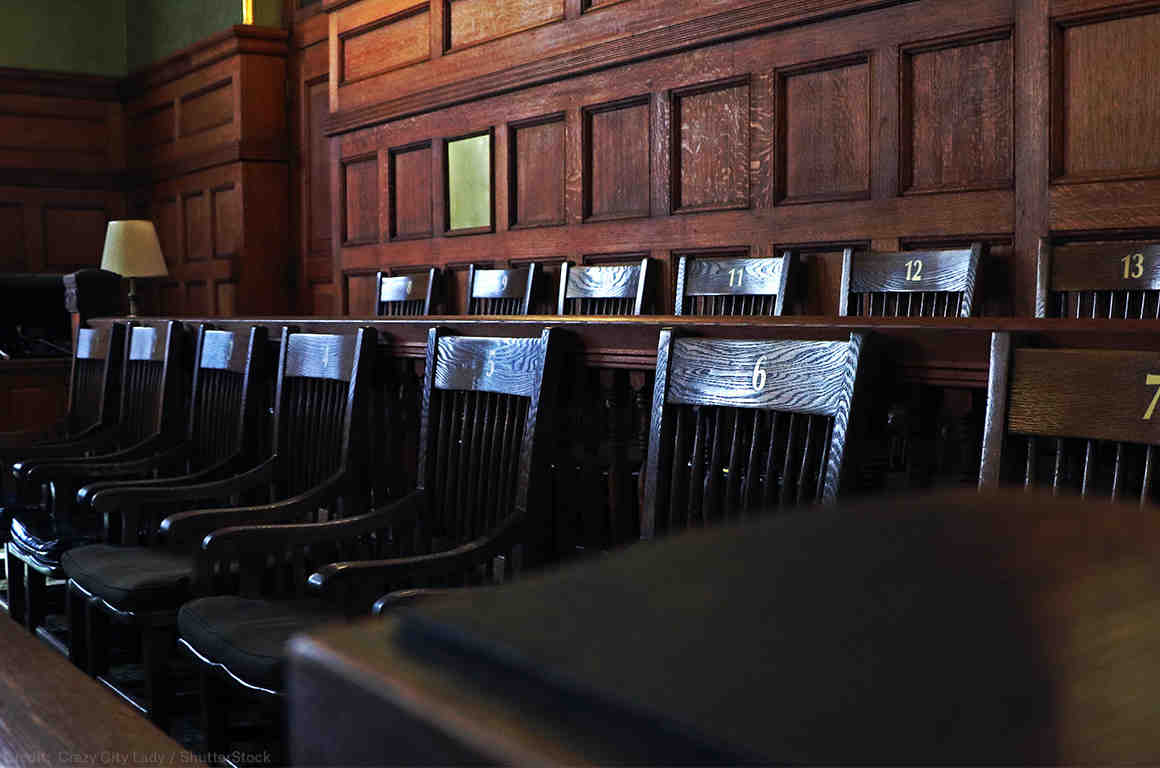

By Jose Medina
LOS ANGELES – Social justice advocates maintain the George Floyd protests have magnified the deep systemic racism that has existed in the United States since its inception, and that racism has permeated every sector within American society, including the legal system.
So, it’s not surprising that the Black community has always held a negative public view of the legal system—and the California Supreme Court’s recent denial to review a case supports that sentiment.
California’s top court refused to consider a petition for review on a case that revolved around the jury selection for the trial of Yosaya Johnson Triplett, a Black woman convicted at trial for the attempted murder of another Black woman.
When it was time to select the jury for Triplett’s trial, the selection began in Los Angeles with 40 possible jurors, and only three of them were Black. Before it was time to conduct preliminary examinations to determine the competency of the jurors, the court excused one of the three Black jurors for cause. The prosecutor of the case then used his first peremptory strike to dismiss another Black juror, which left one last Black juror standing.
The last Black juror, referred to as Prospective Juror No. 16, was then dismissed by the prosecutor’s fourth peremptory strike. The defendant, Triplett, then objected to the strike of Prospective  Juror No. 16 and argued that it was racially motivated.
Juror No. 16 and argued that it was racially motivated.
The court then decided to question the prosecutor on his choice to strike Prospective Juror No. 16.
The prosecutor stated that he made the decision based on how Prospective Juror No. 16 answered the court’s questions during the competency examination of the jurors. The prosecutor explained that “mostly because of her answer, ‘just growing up in L.A.,’ she might not be fair.”
Before the prosecutor made the decision to dismiss Prospective Juror No. 16, the court had asked each juror, “Do you know anybody who has been treated badly by the police or the court?”
This question was meant to evaluate the fairness of each juror so that they would not be biased toward any testimonies at Triplett’s trial. One of the planned testimonies was going to be given by police, thus they questioned the juror’s history with police and the court.
Prospective Juror No. 16 answered by saying, “Yes. Just growing up in L.A., a Black woman in L.A. with young Black brothers, I have been harassed many times by police.” The juror’s response was indicative of the everyday life the Black community experiences constantly, while the prosecutor on the other hand viewed it as a red flag.
Prospective Juror No. 16 seemed willing to still be a fair juror in Triplett’s trial. The court and prosecutor continuously asked her questions on whether or not she would be willing to impartially consider police testimony in Triplett’s case, despite her personal experiences with LAPD. Prospective Juror No. 16 confidently assured all that she would be impartial.
Despite Prospective Juror No. 16’s assurance, the court honored the prosecutor’s strike against her. The court argued that, “as the People pointed out, just living in Los Angeles, she would have bias against police officer testimony.” Unfortunately, Prospective Juror No. 16’s removal left Triplett’s trial devoid of Black jurors and the Court of Appeals affirmed this decision.
Triplett then petitioned to have her case reviewed by the California Supreme Court for discrimination in jury selection process.
But the California Supreme Court denied the petition for review, stating that the court created a Jury Selection Work Group to examine and report on issues of discrimination in the selection of juries in California courts, and insisted Triplett’s case should be reviewed by the work group instead—kicking the can down the road, in effect.
Justice Goodwin Liu strongly dissented and believed that the petition must be reviewed, arguing that “to many people, excluding qualified Black jurors based on their negative experiences with law enforcement or the justice system must seem like adding insult to injury,” referencing the protestors aiming to create deep systemic change within a legal system that has been mistreating the Black community.
Justice Liu noted that “other than voting, serving on a jury is the most substantial opportunity that most citizens have to participate in the democratic process,” suggesting the Black community will be misrepresented in the legal system if they are constantly barred from participating in it, and sends a discriminatory message to the Black community that the legal system does not serve them.
To sign up for our new newsletter – Everyday Injustice – https://tinyurl.com/yyultcf9





